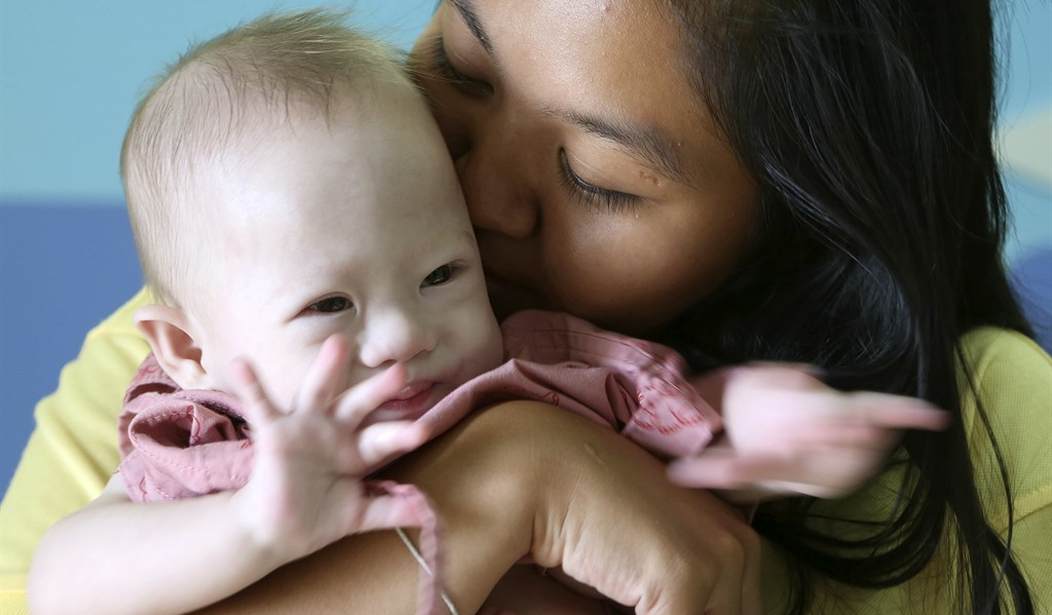The Seventh Circuit Court of Appeals ruled Thursday that Indiana’s ban on abortion based solely on a diagnosis of Down syndrome was “unconstitutional,” siding with Planned Parenthood of Indiana and Kentucky and the American Civil Liberties Union against the 2016 law, signed by then-Gov. Mike Pence.
In his decision, Judge William J. Bauer wrote that "the non-discrimination provisions clearly violate well-established Supreme Court precedent holding that a woman may terminate her pregnancy prior to viability, and that the State may not prohibit a woman from exercising that right for any reason."
“The Supreme Court has been clear: the State may inform a woman’s decision before viability, but it cannot prohibit it,” he added.
The Indiana law said that “Indiana does not allow a fetus to be aborted solely because of the fetus's race, color, national origin, ancestry, sex, or diagnosis or potential diagnosis of the fetus having Down syndrome or any other disability.”
U.S. District Judge Tanya Walton Pratt issued an injunction against the law in September.
In that ruling, Pratt acknowledged that “the parties are essentially in agreement that a significant number of women have sought, and will continue to seek, an abortion solely because of the diagnosis of a disability or the risk thereof” and that “the parties agree that the number of women who will seek an abortion at least in part out of these concerns will likely increase as testing is more widely available than ever before.”
She even cited the heightened abortion rates for unborn babies with Down syndrome and an attestation from the CEO of PPINK that it has and will continue to provide abortions to women who seek an abortion “solely because of a diagnosis of fetal Down syndrome or other genetic disabilities or the possibility of such a diagnosis.”
Recommended
However, according to Pratt, “the Supreme Court has already weighed this interest against a woman’s liberty interest in choosing to terminate a pregnancy and concluded that, prior to viability, the woman’s right trumps the State's interest.”
According to CBS, the United States has an estimated abortion rate of 67 percent (1995-2011) for unborn babies diagnosed with Down syndrome.
The Pennsylvania House most recently passed a ban on abortion solely due to a Down syndrome diagnosis. Ohio also recently enacted a similar ban which is currently being challenged by the ACLU and Planned Parenthood.
Similar legislation was made law in North Dakota in 2013 where it has gone unchallenged likely due to the fact that the state’s only abortion clinic does not perform abortions after 16 weeks of pregnancy.
Jane Henegar, executive director of the ACLU of Indiana, said in a statement that the latest decision "affirmed a woman's fundamental right to make her own personal medical decisions."
"This ruling is a victory for women and another repudiation of attempts by Indiana politicians to restrict — and even ban — access to abortion care," she wrote. "Deeply personal decisions about abortion should be made by women in consultation with their doctors — not by politicians or government bureaucrats.”
However, pro-life groups were disappointed by Thursday’s decision.
Catherine Glenn Foster, President of Americans United for Life, commented that the group," is disappointed by Seventh Circuit Court of Appeals Judge William J. Bauer’s ruling that unborn children diagnosed with disabilities in the womb cannot be protected from fatal discrimination. Indiana and now-Vice President Mike Pence were pioneers in their defense of disabled children, and AUL will continue to fight for the day when all humans are welcomed in life and protected in law."

























Join the conversation as a VIP Member